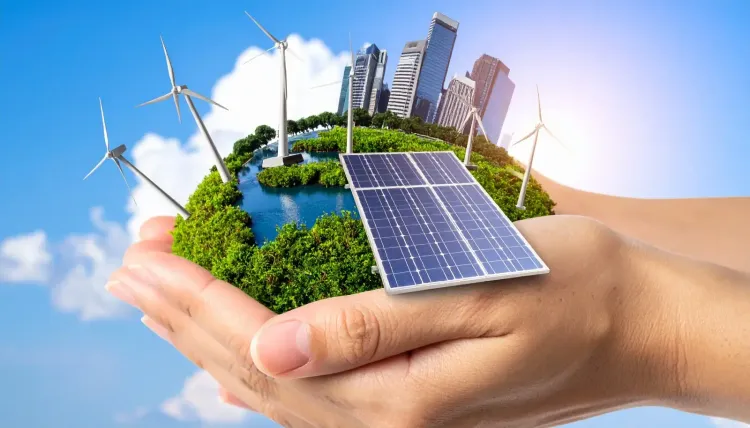Will GST Reforms Reduce Prices of 3 Kilowatt Rooftop Solar Systems by Up to Rs 10,500?

Synopsis
Key Takeaways
- GST rates reduced from 12% to 5%
- 3 kW rooftop systems to be cheaper by Rs 9,000 to Rs 10,500
- Annual savings of Rs 2,000 to 3,000 crore expected
- Significant benefits for farmers under PM-KUSUM scheme
- Encourages investment in solar manufacturing
New Delhi, Sep 17 (NationPress) The recent GST rationalisation has led to a reduction in rates across the renewable energy sector from 12% to 5%, significantly reducing the costs of rooftop solar systems for households. A standard 3-kilowatt (kW) rooftop solar installation is now expected to cost between Rs 9,000 and Rs 10,500 less, according to the Ministry of New and Renewable Energy.
This initiative is poised to facilitate the adoption of solar energy for millions of families, thereby accelerating the large-scale implementation of the PM Surya Ghar: Muft Bijli Yojana.
Additionally, this policy shift will decrease the expenses associated with clean energy projects, resulting in lower electricity costs. This change will directly benefit households, farmers, industries, and developers.
The ministry noted, "For example, the capital outlay for a utility-scale solar project, typically around Rs 3.5–4 crore per MW, will now see savings of Rs 20–25 lakh per megawatt (MW)."
In the case of a 500 MW solar park, project costs could diminish by over Rs 100 crore.
The reduction in GST is anticipated to lower levelized renewable tariffs, thus alleviating the financial pressure on distribution companies (DISCOMs) when procuring electricity.
This reform could result in annual savings of Rs 2,000–3,000 crore in power procurement expenses on a national scale. Consumers will gain improved access to affordable clean electricity, enhancing the long-term sustainability of India’s power sector.
Moreover, farmers enrolled in the PM-KUSUM scheme will experience substantial benefits. A 5 HP solar pump, which previously cost around Rs 2.5 lakh, will now be approximately Rs 17,500 cheaper. For 10 lakh solar pumps, farmers could collectively save Rs 1,750 crore, making irrigation more cost-effective and sustainable.
The lower GST will also boost the competitiveness of domestically-made renewable energy equipment by reducing module and component costs by 3-4%, supporting the 'Make in India' and 'Aatmanirbhar Bharat' initiatives.
With the country aiming for 100 GW of solar manufacturing capacity by 2030, this reform is expected to attract new investments into domestic manufacturing hubs.
The ministry added, "Considering that every GW of manufacturing generates around 5,000 jobs, this reform could create 5–7 lakh direct and indirect employment opportunities over the next decade, fortifying India’s clean energy industrial ecosystem."
Ultimately, the GST reduction will not only decrease the levelized cost of energy but also enhance investor confidence, leading to expedited signing of power purchase agreements and faster project completion.









